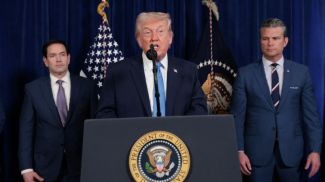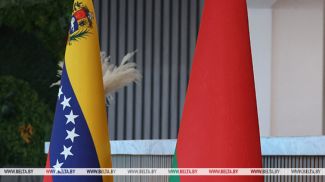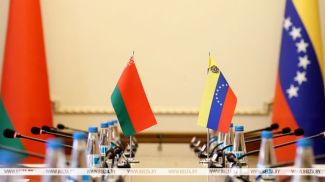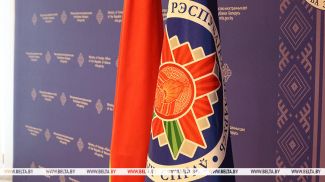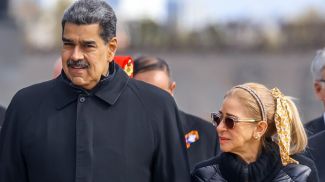ASTANA, 13 October (BelTA) – Natalya Eismont, Press Secretary of Belarusian President Aleksandr Lukashenko explains the importance of the president's participation in major international summits and bilateral talks, BelTA informs.
“I would like to lay out several fundamental points regarding Belarus' participation in the Conference on Interaction and Confidence Building Measures (CICA) in Asia,
the Shanghai Cooperation Organization and other similar organizations,” Natalya Eismont told reporters.
Control at the highest level
The first reason why such events are so important is that they allow checking at the highest level how agreements are being implemented. “Take China, for example. Today the president has had a substantive conversation with Chinese Vice President Wang Qishan where the parties have discussed a lot of things. They include practical aspects of the bilateral relations, and a future meeting between the president of Belarus and the president of the People's Republic of China,” the press secretary noted.
Aleksandr Lukashenko wished every success to the Chinese leadership at the upcoming 20th National Congress of the CPC. A working visit of a Belarusian delegation to China was also discussed.
Aleksandr Lukashenko had a brief conversation with Emir of Qatar, Sheikh Tamim bin Hamad Al Thani in Astana. “They talked about the monitoring and taking stock of the joint projects, for example, in the construction industry and not only that,” Natalya Eismont noted.
Plans for the future
The second thing I would like to highlight is brief meetings, during which the parties chart out plans for bilateral relations. They are not bilateral meetings, in the classical sense. Nevertheless, during such short conversations, leaders determine the perspective. As an example I would like to cite the meeting with Pakistan Prime Minister Shehbaz Sharif. During the recent talks in Samarkand, the leaders defined the mechanisms to develop relations. They include the work of trade and economic commissions, a meeting of foreign ministers in Islamabad. Such work precedes a visit of the Belarusian president to Pakistan.
"However, work on the plans was not as fast as needed. Realizing this, the Pakistan prime minister suggested meeting and having a brief talk. Today the leaders have once again agreed that it is important to accelerate the pace! All the plans will be implemented. This hard work will culminate in a visit of the Belarusian president to Pakistan," the spokeswoman said.
Fundamental meetings
The third most important point is fundamental meetings. The president held such meetings with the presidents of Türkiye and Kazakhstan in Astana on 13 October. They had been thoroughly prepared in advance, although they took place on the sidelines of the summit. A wide range of issues was discussed during these meetings.
“Belarus-Kazakhstan agenda is clear; there are no problems in our relations. The talks with the Turkish president were extensive as well. A proposal to meet and continue the conversation in Ankara was unexpectedly made during the talks. The Turkish leader made such a proposal to the Belarusian president,” Natalya Eismont said.
“The president also had brief conversations with his counterparts from Uzbekistan, Azerbaijan, and Kyrgyzstan. The deputy director general, head of Euro-Asia Division at the Ministry of Foreign Affairs of Israel approached the Belarusian president to talk about the relations with Israel,” the spokesperson said.
According to Natalya Eismont, it takes a lot of work to arrange such formats and platforms where some 20 heads of state and government can gather at one time.
“So judge for yourself whether such work is necessary or not,” Natalya Eismont said.





